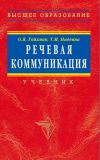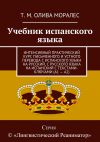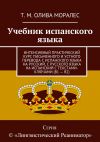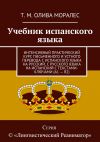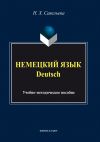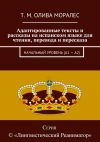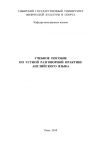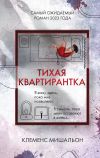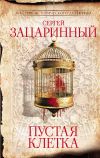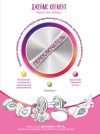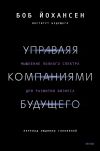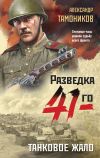Текст книги "Английский по-новому"
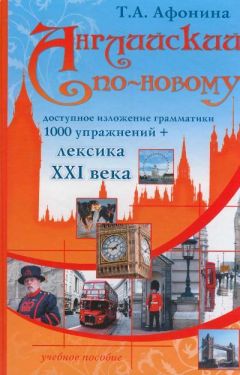
Автор книги: Татьяна Афонина
Жанр: Иностранные языки, Наука и Образование
сообщить о неприемлемом содержимом
Текущая страница: 8 (всего у книги 29 страниц) [доступный отрывок для чтения: 10 страниц]
8.
Вставьте соответствующие формы глаголов.
1. We (translate) … a lot of sentences yesterday. 2. They (read) … texts and (do) … exercises at their English lessons. 3. I usually (get up) … at seven o’clock. 4. Helen (say) … a few words about Tom at the meeting. 5. She never (play) … jokes on her friends. 6. Our teacher often (call) … students to the blackboard. 7. My mother always (do) … everything for my brother. 8. I (answer) … the teacher’s question and she (give) … me a good mark yesterday. 9. We (read) … this text up to the end at the lesson. 10. Last year I (work) … for this company. 11. I knew that he (can) … play the piano quite well. 12. We (must) … go to the hospital to visit her. 13. I am sure that he (can) … swim. 14. We (must) … discuss it together yesterday. 15. He (cannot) … answer the question because it was difficult.
9.
Переведите на английский язык.
1. Я попытался ответить на его вопрос, но не смог. 2. Нам пришлось (мы должны были) сделать это упражнение письменно. 3. Он предпочел не задавать вопросов. 4. Вы хотели, чтобы эта работа была сделана? 5. Они обсудили много вопросов на собрании. 6. Я хотел помочь вам. 7. Вчера он дал мне хороший совет. 8. Нам нужно было поговорить. (Мы должны были поговорить. Нам пришлось поговорить. Мы вынуждены были поговорить.) 9. Кто это сказал? 10. Она обсудила этот вопрос с начальником, не правда ли? 11. Он ведь мог помочь вам? 12. Ее родители могли оплатить обучение в колледже. 13. Мне пришлось ответить на этот вопрос. 14. Нам пришлось выучить текст наизусть.
Be Done
10.
Трансформируйте предложения по образцу.
The exercise is written. → The exercise was written.
The books are read. → The books were read.
1. This money is spent on books. 2. These questions are discussed. 3. She is introduced to his parents. 4. He is respected by his colleagues. 5. The text is translated. 6. The questions are answered. 7. The questions must be answered. 8. The date must be written on the blackboard. 9. The students can be invited into the classroom. 10. The correct answers are ticked. 11. The words must be learned. 12. The copy-books can be handed out.
11.
Поставьте вопросы по образцу.
1. My schoolbag was packed yesterday. → What was packed yesterday? – My schoolbag was.
2. Whose schoolbag was packed yesterday? – Mine.
3. Was my schoolbag packed yesterday?
4. When was my schoolbag packed?
5. My schoolbag was packed yesterday, wasn’t it?
1. Some coffee was poured into my cup. 2. That question had to be answered. 3. That money could be spent on books. 4. My students were given good marks. 5. His brother was sent abroad. 6. The text from lesson № 2 was read up to the end. 7. Our copy-books were handed in. 8. His homework was marked. 9. The correct answers to the questions were ticked. 10. The students’ copy-books were collected by him. 11. The kitchen table was laid for dinner. 12. The document had to be signed yesterday. 13. The sound could be heard at a distance of one hundred meters.
12.
Вставьте соответствующие формы глаголов.
1. The exercise (be done) … yesterday. 2. The text (be read) … up to the end. 3. The question (be discussed) … at that meeting. 4. The margin (must be drawn) … in pencil. 5. Her studies (can be paid for) … by her aunt. 6. After my brother got up, he (be sent) … to the bathroom. 7. The text (be translated) … by Mr. Smith. 8. The document (be signed) … by the boss on Monday. 9. The money (be taken) … by my brother. 10. The copy-books (be usually handed in) … at the end of the lesson.
13.
Переведите на английский язык.
1. Кровать уже застелена. 2. Кофе был сварен десять минут назад. 3. Ванна уже наполнена водой. 4. Поля обычно оставляют пустыми для пометок. 5. Проблема была обсуждена вчера на собрании. (at yesterday’s meeting) 6. Он был представлен ее родителям на вечеринке. 7. Ботинки уже почищены. 8. Рубашка была поглажена вчера. 9. На доске была написана дата (число). 10. Текст уже переведен. 11. Статью пришлось переводить на уроке. 12. Этот вопрос можно было обсудить, так как вчера все присутствовали. 13. У нас не было последней страницы, поэтому текст не мог быть прочитан (невозможно было прочитать) до конца.
14.
Трансформируйте предложения из текстов уроков 1 и 2 в Past Indefinite Tense.
14.
Употребите предложения текстов 1 и 2 в Past Indefinite.
15.
Расскажите о своем друге в Past Indefinite.
16.
Напишите сочинение на тему My Friend.
Будущее неопределенное время (The Future Indefinite Tense)
I. The Future Indefinite Tense употребляется для обозначения действия, которое произойдет или будет происходить в будущем.
II. Для Future Indefinite характерны обстоятельства времени:
tomorrow завтра
the day after tomorrow послезавтра
next day на следующий день (понедельник)
next Monday в следующий понедельник
next week на будущей (следующей) неделе
next month (year, October) в будущем (следующем) месяце (году, октябре)
in … (two minutes) через (две минуты)
later позднее, позже
(2 minutes) later (две минуты) спустя
on Monday в понедельник
in September в сентябре
in 2006 в 2006 году
in future in the near future etc. в будущем в ближайшем будущем и т. д.
III. Bo Future Indefinite модели be, do и be done выглядят следующим образом:


Примечание: В отрицательных предложениях глаголы shall и will имеют либо полные формы – shall not will not, либо сокращенные формы – shan’t won’t.
IV. Модальные глаголы Must и Can


V. В придаточных предложениях времени и условия вместо форм будущего времени употребляются формы настоящего времени. Эти придаточные предложения вводятся словами:
if (если), when (когда), as soon as (как только), before (перед тем, как), after (после того, как), till (until) (до тех пор, пока не), unless (если не), on condition that (при условии, что).
If I get this money (а не if I will get this money), I will spend it on books. Если я получу эти деньги, я потрачу их на книги. (В русском языке глагол «получу» имеет форму будущего времени.)
I’ll call you when the coffee is ready. (а не when the coffee will be ready). Я тебя позову, когда кофе будет готов.
Примечание:
Действие этого правила зависит от вида придаточного, а не от слова, которым это придаточное вводится. После if и when, а также после других союзов может употребляться будущее время, если это не придаточное времени или условия.
When will he come? Когда он придет? Это вопрос, а не придаточное предложение.
She’ll tell you when he will come. Он скажет тебе (что?), когда он придет (т. е. назовет время своего прихода). – В этом предложении придаточное изъяснительное, а не условное.
Упражнения
Be
15.
Трансформируйте предложения по образцу.
I am eighteen. → I’ll be eighteen (next year).
I am not at home. → I won’t be at home tomorrow.
1. I am a student of the Royal College. 2. My parents are not at home. 3. She is in Spain. 4. The questions are rather difficult. 5. The teacher is not angry with him. 6. It is pleasant to work with him. 7. My brother is a zoologist. 8. She is not ready to help you. 9. He can be attentive and careful. 10. She must be more responsible. 11. The question is not important. 12. She can be very patient with her students. 13. He must be there at five p.m.
16.
Поставьте вопросы по образцу. Ответьте на вопросы.
My mother will be very glad to see you. → Who will be very glad to see you? – My mother will.
Whose mother will be very glad to see you?
Will my mother be very glad to see you?
Whom will my mother be very glad to see?
My mother will be very glad to see you, won’t she?
1. My brother will be in Africa next summer. 2. Her friend will be an experienced manager in 2 years. 3. Your students will be in room 25. 4. Our boss will be very angry with us. 5. The teacher’s questions will be rather simple. 6. His exam text will be quite difficult. 7. Their students will have to be very attentive at tomorrow’s lesson. 8. Our boss will have to be more polite with us. 9. Your colleague won’t be able to be patient with a client like this.
17.
Вставьте соответствующие формы глагола (Present Indefinite, Past Indefinite, Future Indefinite).
1. She says she (be) … more attentive next time. 2. I think everybody can see now that the text (be) … not difficult. 3. She (be) … more polite with you tomorrow. 4. The question (be) … not as easy as you hoped. 5. I don’t think the mark for the test (be) … good because I made a lot of mistakes when I wrote it. 6. Wait! The coffee (be) … ready in five minutes. 7. Our English teacher gave us a very big home task yesterday. Exercise on page 5 (be) … very long. 8. I don’t think he (be) … in London next week but you can call him if you want to. 9. It (be) … rather difficult to find the documents tomorrow because we don’t know where they can be. 10. Drink your coffee or it (be) … cold in two minutes. 11. She hopes her son (can be) … more attentive at the lesson tomorrow. 12. Everybody knows that it is very difficult to look after children. She (must be) … very patient.
18.
Переведите на английский язык.
1. Текст не будет очень сложным. 2. Она будет очень рада видеть вас. 3. Я надеюсь, вы будете готовы к завтрашней контрольной. 4. Через два часа мы будем дома. 5. Фильм не будет очень интересным. 6. Мистер Смит будет хорошим начальником отдела. Он опытный, терпеливый и ответственный. 7. Мы будем дома через десять минут. 8. Чай не будет готов через двадцать минут. 9. Им придется быть готовыми ко всему. 10. Нам придется быть очень осторожными. 11. Я думаю, что он не сможет быть начальником нашего отдела. Он довольно неопытный.
Do
19.
Трансформируйте предложения по образцу.
He keeps his handwriting straight. → He will keep his handwriting straight.
1. We often discuss important questions. 2. I usually do my homework in the evening. 3. The teacher asks us questions and we answer them. 4. The teacher comes into the classroom at nine clock. 5. We hand in our copy-books at the end of the lesson. 6. They usually put different types of questions on the texts from the textbook. 7. He doesn’t spend much money on books. 8. She doesn’t pay for her niece’s studies. 9. He doesn’t play the piano well. 10. The teacher collects our test papers at the end of the lesson. 11. He doesn’t have to do this exercise in writing. 12. We have to learn a lot of texts by heart. 13. He can’t help her to do her homework. 14. We can translate this article ourselves.
20.
Поставьте вопросы по образцу. Ответьте на вопросы.
My brother will play the piano for us. →
Who will play the piano for us?
Whose brother will play the piano for us?
Will my brother play the piano for us?
Whom will my brother play the piano for?
My brother will play the piano for us, won’t he?
1. My mother will come home at five. 2. Her students will tick the correct answers right in their textbooks. 3. His sister will make some coffee for us. 4. Our teacher will ask you a couple of questions. 5. Their parents will go abroad next summer. 6. My aunt will be able to pay for my studies. 7. Your friend will have to take care of his elderly aunt. 8. His sister will invite you to the party. 9. His advice will come in handy. 10. All your colleagues will respect you. 11. My mother will be able to understand me. 12. My students will have to do this exercise in writing. 13. Her colleagues will have to help her with the work.
21.
Вставьте соответствующие формы глагола (Present, Past или Future Indefinite).
1. I usually (discuss) … all important questions with him. 2. I (discuss) … this question with him later. 3. We usually (translate) … English texts at our English lessons. 4. We (translate) … this text tomorrow. 5. Sometimes she (help) … my wife to look after our children, when they lived together. 6. She (look) … after our children on Friday. 7. We (visit) … our aunt every week. 8. We (visit) … our aunt next month. 9. He usually (pack) … his school bag in the evening. 10. He (pack) … his school bag tomorrow. 11. Don’t even try to help her. She (can do) … the homework by herself. 12. We (have to discuss) … this question at tomorrow’s meeting.
22.
Переведите на английский язык.
1. Я не буду обсуждать с вами этот вопрос. 2. Кто будет платить за его обучение? 3. На что вы потратите эти деньги? 4. Она присмотрит за вашими детьми. 5. Я представлю ее вам завтра на вечеринке. 6. Мы не последуем вашему совету. 7. Он не поедет к ней во вторник. 8. Вы сделаете это упражнение письменно? 9. Урок начнется в 9 часов? 10. Я приготовлю вам полотенце. 11. Мы не сможем написать контрольную работу хорошо. 12. Он надеется, что он сможет получить хорошую оценку на уроке английского языка. 13. Нам не придется навещать ее. 14. Им придется выучить эти слова наизусть.
Be Done
23.
Трансформируйте предложения по образцу.
My shirt is cleaned. → My shirt will be cleaned.
The exercise is not written. → The exercise will not be written.
1. The question is asked. 2. The question must be answered. (The question has to be answered) 3. The problem must be discussed. (The problem has to be discussed.) 4. The table is laid. 5. The tea is not made. 6. The shirt is not ironed. 7. The bath-tub is filled with water. 8. The shoes are not polished. 9. The bread is sliced. 10. The coffee is not ground.
24.
Поставьте вопросы по образцу.
Our copy-books will be marked by the teacher. →
What will be marked by the teacher?
Whose copy-books will be marked by the teacher?
Will our copy-books be marked by the teacher?
Whom will our copy-books be marked by?
Our copy-books will be marked by the teacher, won’t they?
1. Your shirt will be ironed in five minutes. 2. Their question will be discussed tomorrow. 3. Our children will be looked after on Saturday. 4. His mistakes will be corrected by the teacher. 5. My schoolbag will be packed in the evening.
25.
Переведите на английский язык.
1. Когда будут переведены эти предложения? 2. За нашими детьми завтра присмотрят, не правда ли? 3. Этот вопрос не будет обсуждаться завтра. 4. На что будут потрачены эти деньги? 5. На этот вопрос будет дан ответ позже. 6. Придется задать вопросы разных видов к этому предложению. 7. Текст не придется учить наизусть. 8. Статью придется перевести.
26.
Переведите предложения, обращая внимание на то, что в придаточных предложениях времени и условия будущее время не употребляется, заменяясь на настоящее.
Сравните предложения:
He will tell you that when he comes. Он скажет тебе это, когда приедет.
He will tell you when he comes. – Он скажет тебе, когда приедет.
В первом предложении имеется придаточное предложение времени: Он скажет тебе это (когда?), когда приедет, поэтому глагол в придаточном предложении употреблен в настоящем времени.
Во втором предложении when вводит придаточное изъяснительное: Он скажет тебе (что?), когда приедет, поэтому глагол употреблен в будущем времени.
1. Мы обсудим этот вопрос, когда он придет. 2. Я не поставлю вам хорошую оценку, пока вы не выучите эти слова. 3. Мистер Смит поможет вам, если вы не сможете сделать это сами. 4. Я соберу школьную сумку утром, когда встану. 5. Где вы возьмете деньги, если вам придется платить за обучение? 6. Джон вам скажет, когда приедет. 7. Том вам скажет это, когда приедет. 8. Я отвечу на ваш вопрос, как только вы сдадите свою тетрадь на проверку. 9. Мы внимательно изучим документ, перед тем как он подпишет его. 10. Мы навестим вас, после того как он вернется.
27.
Перескажите тексты уроков 1 и 2 в Future Indefinite.
Трансформируйте каждое предложение текстов из уроков 1 и 2 в отрицательное (в форме Future Indefinite).
28.
Составьте диалоги на основе пройденных текстов, используя изученные видо-временные формы.
29.
Подготовьте сообщение и/или напишите сочинение на темы “At the lesson”, “A few words about myself”, “My family”, “My fiend”, используя изученную лексику и грамматику.
Урок 3 (Lesson 3)
Текст: My House. Упражнения к тексту. Упражнения на повторение грамматики. Неопределенное местоимение one. Артикль (повторение). There is there are. Альтернативный вопрос. Too/either/ neither. Модальные глаголы may, should. Прилагательные little и few. Артикли с существительными, обозначающими уникальные явления, предмет, понятие или вещество в общем смысле, определенными ситуацией. Тексты: My Flat. The Hall. The Bathroom. The Kitchen. Kitchen Utensils and Appliances. My Parents’ Sitting Room. The Bedroom I Want to Have. Упражнения к текстам. The Present Continuous Tense. Правила образования ing-формы. Упражнения. Обзорные переводы: на Present Indefinite и Present Continuous. The Present Perfect Tense. Упражнения. Обзорные переводы на Present/ Past/Future Indefinite, Present Continuous, Present Perfect.
My House
Vocabulary (Словарь)
1. live at 15 Minskaya street жить по адресу: Минская улица, 15
2. I must say (admit) я должен сказать (признаться)
3. a house of one’s own собственный дом
4. be situated находиться (быть расположенным)
5. neither … nor … ни … ни…
6. in the centre of smth в центре чего-л.;
on the outskirts of smth на окраине чего-л.
7. a multistorey [,mʌltɪ'stɔ:rɪ] brick building многоэтажное кирпичное здание
8. I have reasons to believe у меня есть основания полагать
9. the so-called так называемый
10. baroque [bə'roʊk] барокко
11. broadly [brɔ:d] широко (о распространенности)
12. front ['frənt] side передняя сторона, фасад
13. face smth зд.: стоять лицом к, выходить на…, быть обращенным к…
14. on the one hand с одной стороны
on the other hand с другой стороны
15. wide широкий
16. traffic ['træfɪk] зд.: автомобильное движение
17. busy зд.: оживленный
18. in the day-time днем
19. convenient [kən'vi:njənt] удобный
20. underground подземка, метро
21. to the left of the house слева от дома
22. move in въехать, вселиться
23. go by the undergroundsubway (car) ездить на метро (автомобиле)
24. I used ['ju:zd] to do smth раньше я делал (а теперь нет)
25. neat ['ni:t] аккуратный
26. flower-bed ['flaʊə,bɛd] клумба
27. bench скамейка
28. sports-ground спортивная площадка
29. behind сзади, позади
30. be crowded ['kræʊdɪd] быть заполненным людьми, переполненным
31. unfortunately [ʌn'fɔ:tʃənɪtlɪ] к сожалению;
fortunately к счастью
32. parking lot парковка
33. half the residents половина жителей
34. take a decision [dɪ'sɪʒən] принять решение;
the ~ was taken решение было принято
35. garage [gə'rɑʒ] гараж
36. approve [ə'pru:v] of the idea одобрять идею (замысел)
37. it is common knowledge ['nɑlɪdʒ] всем известно
38. construction [kən'strəkʃən] строительство
39. take a lot of time занимать много времени
40. pull down (a house) сносить (дом)
41. destroy [dɪ'strɔɪ] разрушать;
to be ~ed быть разрушенным
42. turn into smth превратиться во что-л.;
to be ~ed into smth быть превращенным во что-л.
43. construction site строительная площадка
44. to hang (hung, hung) about some place (cellars ['selərz] and attics ['ætɪks]) болтаться где-л. (проводить время) (по подвалам и чердакам)
45. deserted [dɪ'zərtɪd] houses заброшенные, «выселенные» дома
46. lift лифт
47. play cards играть в карты;
to ~ the guitar играть на гитаре
48. by the entrance ['entrəns] у подъезда (у входа)
49. probably ['prɑbəbli:] наверное, должно быть, скорее всего
50. disturb [dɪ'stərb] smb причинять кому-л. беспокойство, мешать кому-л.
51. pay more attention to smth (smb) уделять больше внимания чему-л. (кому-л.)
52. cost ['kɔst] smb a fortune ['fɔrtʃən] стоить кому-л. целого состояния, обойтись кому-л. дорого
53. besides кроме того
54. inconvenience [,ɪnkən'vi:njəns] неудобство
55. cut out smth отключить что-л. (например, воду)
56. electricity [ɪ,lek'trɪsəti:] электричество
57. running water водопровод
58. be afaid of smth бояться чего-л.
59. be on the brink of drastic changes быть на пороге больших перемен
60. landing лестничная площадка
61. dumping ['dəmpɪŋ] place свалка, место для мусора
TEXT
My name is Ivan Simonov.
I live at 15 Minskaya Street. I must say (admit) that I am not very rich, so I have no house of my own. The house I live in is situated neither in the centre, nor on the outskirts of the city. It is a multistorey brick building. It is rather old. I have reasons to believe that the house was built about fifty years ago because it is the so-called Stalin baroque and this style was broadly used at that time (in that period).
The front side of the house faces Minskaya Street. On the one hand it is not very nice because the street is wide and the traffic is rather busy, especially in the day-time. But on the other hand there are several bus stops and shops near my house, so it is very convenient.
You can see an underground station to the left of the house. It was already there when we moved in. Earlier, I always went to work by underground (I used to go to work by underground), but now I have a car and I go there by car.
There is a small and neat garden with flower-beds and benches to the right of the house. My son always walked there when he was a little boy. Now he is a teenager and he prefers to spend his free (spare) time at the sports-ground, which is in the yard right behind the building. The sports ground is always crowded. There are a lot of children there. They play football, volleyball, basketball and what not.
Unfortunately, there is no parking lot in front of our house and as half the residents have cars of their own, the decision was taken to build an underground multistorey garage under the sports ground. Not everybody approves of the idea, though. It is common knowledge that the construction (building) of the garage will take a lot of time. The sports-ground will be pulled down, the yard will be turned into a construction site. And where will our children go? I am sure they will start to hang about the cellars and attics in deserted houses, go up and down in the lifts, play cards at the staircases and play the guitar by the entrance. And this will probably disturb our neighbours a great deal. So we’ll have to pay more attention to our children. The building of the garage will cost us a fortune. Besides, there will be a lot of inconvenience. The workers will certainly cut out the electricity and (the) running water. I am afraid that the gas and (the) central heating will be cut out too. So we are on the brink of drastic changes, aren’t we?
Упражнения к тексту
1.
Вставьте соответствующие формы глаголов.
I (live) … at 15 Minskaya street. I … must (say) … (admit) that I (be) … not very rich, so I (have) … no house of my own. The house I (live) … in (be) … (situate) … neither in the center, nor on the outskirts of the city. It (be) … a multistorey brick building. It (be) … rather old. I (have) … reasons … (believe) … that the house … (build) … about fifty years ago because it (be) … the so-called Stalin baroque and this style … broadly (use) … at that time (in that period).
The front side of the house (face) … Minskaya street. On the one hand it (be) … not very nice because the street (be) … wide and the traffic (be) … rather busy, especially in the day-time. But on the other hand there (be) … several bus stops and shops near my house, so it (be) … very convenient.
You … can (see) … an underground station to the left of the house. It (be) … already there when we (move) … in. Earlier, I … always (go) … to work by underground (I (use) … (go) … to work by underground), but now I (have) … a car and I (go) … there by car.
There (be) … a small and neat garden with flower-beds and benches to the right of the house. My son always (walk) … there when he (be) … a little boy. Now he (be) … a teenager and he (prefer) (spend) … his free (spare) time at the sports-ground which (be) … in the yard right behind the building. The sports-ground (be) … always (crowd) … There (be) … a lot of children there. They (play) … football, volleyball, basketball and what not.
Unfortunately, there (be) … no parking lot in front of our house, and as half the residents … (have) … cars of their own, the decision (be) … (take) (build) … an underground multistorey garage under the sports-ground. Not everybody … (approve) … of the idea, though. It (be) … common knowledge that the construction (building) of the garage … (take) … a lot of time. The sports-ground (be) … (pull) … down…, the yard (be) (turn) … into a construction site. And where … our children go…? I (be) … sure they … (start) (hang) … about the cellars and attics in deserted houses, (go) … up and down in the lifts, (play) … cards at the staircases and (play) … the guitar by the entrance. And this … probably (disturb) … our neighbours a great deal. So we … (have) (pay) … more attention to them. The building of the garage … (cost) … us a fortune. Besides, there (be) a lot of inconvenience. The workers … certainly … (cut) … out the electricity and (the) running water. I am afraid that the gas and (the) central heating (be) (cut) … out too. So we (be) … on the brink of drastic changes, we?
2.
Вставьте, где надо, предлоги и наречия.
I live … 15 Minskaya street. I must say (admit) that I am not very rich, so I have no house of my own. The house I live … is situated neither … the centre, nor … the outskirts … the city. It is a multistorey brick building. It is rather old. I have reasons to believe that it was built about fifty years ago because it is the so-called Stalin baroque and this style was broadly used … that time (… that period).
The front side … the house faces Minskaya street … the one hand it is not very nice because the street is wide and the traffic is rather busy, especially … the daytime. But … the other hand there are several bus stops and shops near my house, so it is very convenient.
You can see an underground station … the left … the house. It was already there when we moved … Earlier, I always went … work … underground (I used to go … work … underground), but now I have a car and I go there … car.
There is a small and neat garden … flower-beds and benches … the right of the house. My son always walked … there when he was a little boy. Now he is a teenager and he prefers to spend his free (spare) time … the sports-ground, which is in the yard right behind … the building. The sports-ground is always crowded. There are a lot of children there. They play … football … volleyball … basketball and what not.
Unfortunately, there is no parking lot … front … our house and as half … the residents have cars … their own, the decision was taken to build an underground multistorey garage … the sports-ground. Not everybody approves … the idea, though. It is common knowledge that the construction (building) … the garage will take a lot of time. The sports-ground will be pulled down, the yard will be turned … a construction site. And where will our children go? I am sure they will start to hang … the cellars and attics … deserted houses, go … and the lifts, play … cards … the staircases and play … the guitar … the entrance. And this will probably disturb our neighbours a great deal. So we’ll have to pay more attention … our children. The building … the garage will cost us a fortune. Besides, there will be a lot of inconvenience. The workers will certainly cut … the electricity and (the) running water. I am afraid that the gas and (the) central heating will be cut … too. So we are … the brink of drastic changes, aren’t we?
3.
Вставьте, где надо артикли.
I live at … 15 … Minskaya street. I must say (admit) that I am not very rich, so I have … no … house of my own … house I live in is situated neither in … center, nor on … outskirts of … city. It is … multistorey brick building. It is … rather old … I have … reasons to believe that it was built about fifty years ago because it is … so-called Stalin baroque and this style was broadly used at that time (in that period).
… front side of … house faces Minskaya street. On … one hand it is not very nice because … street is wide and … traffic is rather busy, especially in … day-time. But on … other hand there are several bus stops and shops near … my house, so it is very convenient.
You can see … underground station to … left of … house. It was already there when we moved in. Earlier, I always went to … work by … underground (I used to go to … work by … underground), but now I have … car and I go there by … car.
There is … small and neat garden with … flower-beds and … benches to … right of … house. My son always walked there when he was … little boy. Now he is … teenager and he prefers to spend his free (spare) time at … sports-ground, which is in … yard right behind … building … sports-ground is always crowded. There are … lot of children there. They play … football…volleyball … basketball and what not.
Unfortunately, there is no … parking lot in … front of our house, and as half … residents have … cars of their own … decision was taken to build … underground multistorey garage under … sports ground. Not everybody approves of … idea, though. It is … common knowledge that … construction (building) of … garage will take … lot of time … sports ground will be pulled down … yard will be turned into … construction site. And where will our children go? I am sure they will start to hang about … cellars and attics in … deserted houses, go up and down in … lifts, play … cards at … staircases and play … guitar by … entrance. And this will probably disturb our neighbours … great deal. So we’ll have to pay more attention to our children … building of … garage will cost us … fortune. Besides, there will be … lot of inconvenience … workers will certainly cut out … electricity and … running water. I am afraid that … gas and … central heating will be cut out too. So we are on … brink of … drastic changes, aren’t we?
4.
Ответьте на вопросы.
1. Where does Mr. Simonov live? 2. Why doesn’t he have a house of his own? 3. Is the house he lives in situated in the centre? 4. What kind of house is it? 5. What style is it? 6. What can you say about this style? 7. What street does the house face? 8. Is it convenient or not? Why? 9. Where is the underground station? 10. How did Mr. Simonov go to work earlier? 11. How does he go to work now? 12. What is there to the right of the house? 13. What is there behind the house? 14. What games do children play at the sports-ground? 15. Where did Mr. Simonov’s son walk when he was a little boy? 16. Where does he prefer to spend his time now? 17. What is there in front of the house? 18. What kind of decision was taken and why? 19. Why doesn’t everybody approve of the idea? 20. What will the workers do to the sports-ground? 21. Why does Mr. Simonov worry about his children? 22. Where will they go and what will they do? 23. What sort of inconvenience will the residents of the house have?
Правообладателям!
Данное произведение размещено по согласованию с ООО "ЛитРес" (20% исходного текста). Если размещение книги нарушает чьи-либо права, то сообщите об этом.Читателям!
Оплатили, но не знаете что делать дальше?
